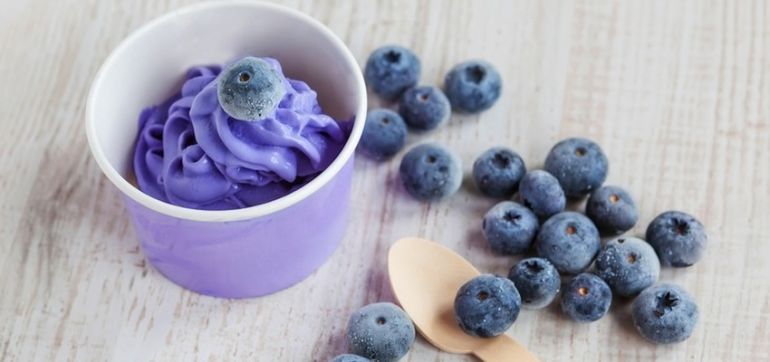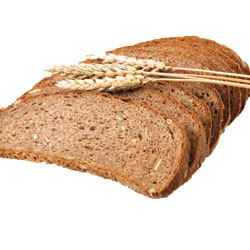The 4 Food Additives That Could Be Making Us Fat

It’s easy to read an ingredient panel and have a heart attack. After all, what are all those chemicals doing to your body? But before you tie yourself in a knot of anxiety over cancer, keep in mind that our biggest public health problem is actually obesity, which is closing in on smoking as the number one cause of preventable death. So maybe the real question we should be asking about food additives is this: Are they making us eat more?
Here are some that could be doing just that:
1. MSG
Ever heard of “Chinese Restaurant Syndrome” — the term for the headache, sweating, facial tightness and fluttering heartbeat that characterizes an overdose of monosodium glutamate? It’s a myth. As is the internet legend that eating MSG floods your brain with “excitoxins” and causes Alzheimers or Parkinson’s Disease.
But here’s what is true: MSG stimulates the "umami” taste receptor on your tongue, which sends nerve impulses to various parts of your brain. One of those parts is the orbitofrontal cortex, which is associated with decision making and gratification. MSG also stimulates the insula, a brain region that plays an important role in addictive behavior. How does that affect the taste of what you’re eating? It amps up the flavor.
So now ask yourself this: Americans consume 42 million pounds of MSG per year — sprinkling on everything from crackers to breaded chicken nuggets and potato chips. Are we fooling ourselves by making processed carbs taste like protein? And does chemically stimulating all those brain receptors have something to do with the obesity epidemic?
2. Artificial flavors
How is it possible that a candy could taste so convincingly like strawberries? Why is it that a can of soda without so much as a drop of orange juice could nevertheless taste like “orange”? The answer is flavorings — the complex, elusive chemicals that lend foods their distinctive tastes. The scientist who discovered them called them “trigger substances” because of their ability to jolt an organism into eating. Animal scientists refer to them as “feeding stimulants.”
In the 1950s, flavor scientists got to be very good analyzing the flavor chemicals in real foods like oranges, strawberries, roast chicken and carrots, and soon began producing them synthetically in factories.
Without flavorings, soft drinks would just taste like sugar water, candies would be sugar lozenges, and potato chips would taste like what they actually are: potatoes. We sprinkle millions of pounds of “feeding stimulants” on food every year. Without all that flavoring, how much junk food would people actually eat?
3. Natural flavors
So thank goodness for “natural” flavors, right? Because if something is natural, it must be good for you. Not so fast. The only difference between natural and artificial flavors, it turns out, is how they’re made. Chemically speaking, they’re virtually identical.
So the next time you see “natural flavors” inside something you’re putting in your mouth, don’t imagine a forest, a meadow, or a basket of freshly picked fruit. Imagine an industrial vat filled with refined chemicals expertly formulated to evoke maximum deliciousness. Then ask yourself, should I be eating this?
4. Artificial Sweeteners
The diet industry’s best kept secret is that artificial sweeteners aren’t doing what they’re supposed to. People who consume them in large volumes face nearly the same risk for obesity, hypertension, stroke, heart disease, and Type 2 diabetes as people who eat too much sugar.
So the best case scenario is that artificial sweeteners — like aspartame, sucralose (the sweetener in Splenda), acesulfame potassium and saccharin — are not helping people lose weight.
And it might be a whole lot worse than that. In rats, artificial sweeteners have been shown to induce what behavioral neuroscientist Susan Swithers refers to as “metabolic derangements.”
Basically, they cause the sensation of sweetness to lose its “meaning” — the body no longer regards it as a dependable signal of impending calories.
As a result, when sugar is consumed, the body does not produce the right kind of physiological signals, which leads the animals to eat too much and gain weight.
A Yale neuroscientist named Dana Small hypothesized that if eating artificial sweeteners “erodes the relationship between sweet taste and calories,” then that eroded relationship should be measurable in brain scans.
And that’s exactly what she found. In a study published in Appetite, Small observed that a part of the brain called the amygdala functioned differently in people who used artificial sweeteners as opposed to sugar. You might be able to fool your tongue, but you can’t fool your brain.
To learn more, check out The Dorito Effect, available where books are sold.
Photo Credit: Shutterstock
-
Weight Loss Can Be Torture Or Easy
Most of us on this planet have to think
-
Reduce Liposuction Costs By Up To 70 And Still Get World Class Treatment
Costs are an important factor when considering liposuction; however, t
-
3 Prerequisites for Successful Weight Loss
Can weight loss be fun, pleasurable, natural and even easy? Ye
-
The Simple Way to Lose Weight (In the Shower)!
It seems there is a litt
-
Drop 10 Lbs. The Healthy And Safe Way - The Good Approach Towards A Slimmer Physique
A lot of folks would like to burn pounds, however most of them omit th
-
How To Keep A Weight Loss Journal
One of the best ways to help you lose weight is to keep a weight loss
- DON'T MISS
- Influenza (flu) vs. pneumonia, differences in symptoms, causes, and treatment
- Learn To Lose Baby Fat At Home Permanently
- How To Lose Weight Fast?
- Lose Weight With Yoga
- It Works Body Wraps to Lose Face Fat
- How to Get Rid of Cellulite Using Cellulite Exercise
- Simple Strategies for Weight Loss Success
- Is it Harder for Women to Lose Weight Than Men?
- Eating - Loving it the Right Way
- Florida Organizes Various Weight Loss Programs Every Year




